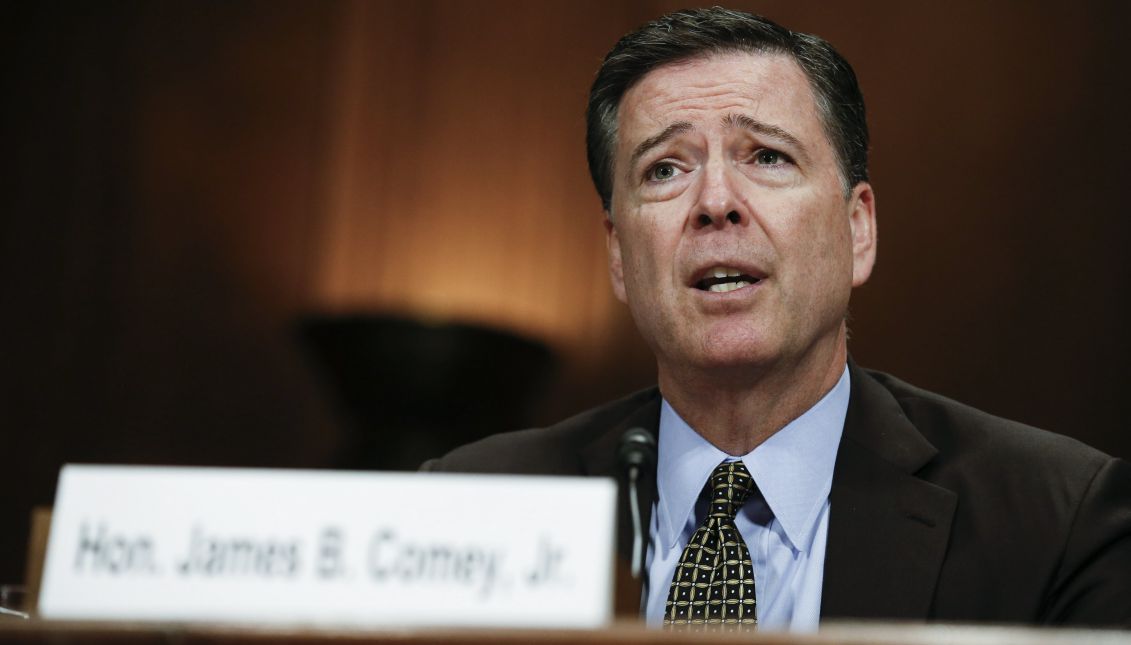
FBI chief: I felt nauseous to think I could have influenced US election
FBI Director James Comey told senators on Wednesday that he felt "mildly nauseous" thinking that his investigation of Hillary Clinton could have influenced the 2016 presidential election, but he strongly defended his decision to reopen the probe when there were just 11 days left before the vote.
Comey testified in public on Wednesday, for the first time, about the decisions he made during the election campaign, which have brought harsh criticism from Democrats, including Clinton, who on Tuesday said that she was convinced that she would have won the election if the FBI chief had not reopened the investigation.
"It was a hard choice, I still believe in retrospect the right choice," Comey said before the Senate Judiciary Committee. "I can't consider for a second whose political fortunes will be affected."
He also said that he would not change his decision, thus defending his decision, taken Oct. 28, 2016, to notify Congress that he was reopening the investigation into Clinton's use of private e-mail servers for official communications when she was secretary of state from 2009-2013.
To have hidden the fact that the investigation had been reopened would, from his point of view, been "catastrophic," Comey emphasized to the lawmakers.
Months before sending that notification to Congress, last July, Comey had announced at a press conference that the FBI would not file criminal charges against Clinton and her staffers because there had been no intent by them to violate the law, although he did say that they had acted negligently in handling classified information.
Comey said that he decided to reopen the probe because FBI agents found "thousands" of e-mails from Clinton on the laptop of former lawmaker Anthony Weiner, who was married to Huma Abedin, one of the Democratic presidential nominee's closest political advisers.
CONTENIDO RELACIONADO
FBI agents found e-mails stemming from Clinton's first three months as the top US diplomat on that computer and Comey noted that never before had the agency found e-mails from that time period and that discovery was "obviously very important."
The e-mails - once analyzed - did not change the FBI's opinion and the agency later announced that it still would not file criminal charges against Clinton.
Nevertheless, many Democrats felt that the damage had already been done and, in fact, Clinton on Tuesday blamed Comey for her election loss.
"I was on the way to winning until a combination of Jim Comey's letter on October 28 and Russian WikiLeaks raised doubts in the minds of people who were inclined to vote for me and got scared off," the former first lady said in a New York interview at the Women for Women International summit.
Democratic senators asked Comey several times why he had decided to publicly discuss the Clinton investigation and not the fact that an FBI probe had been launched into whether or not Trump or his advisers had had inappropriate contacts with Russian agents with an eye toward influencing the election in the mogul's favor.
The FBI chief said that he would not discuss the Russia probe until it was concluded.










DEJE UN COMENTARIO: